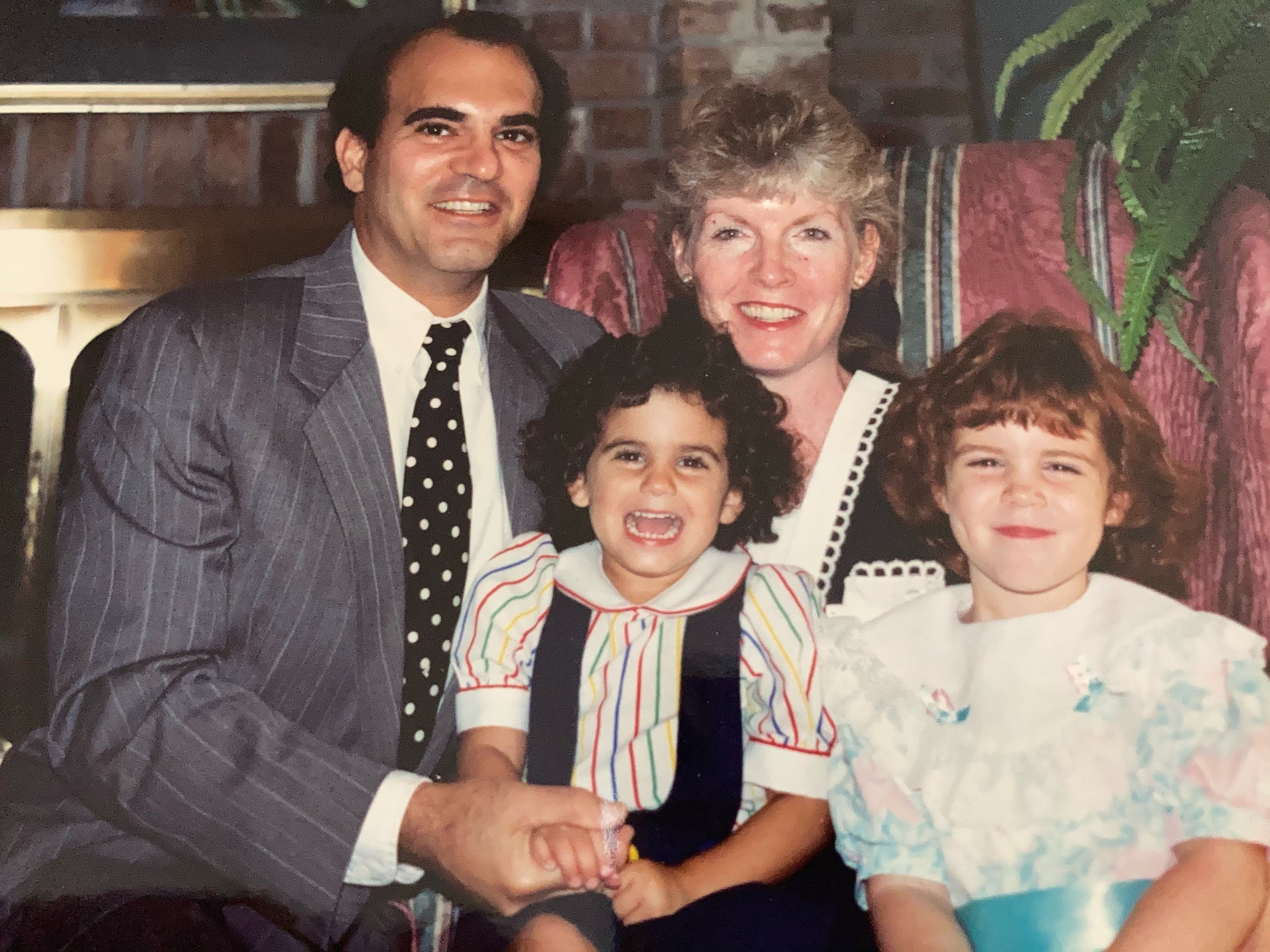The connection between childhood and leadership
My family and me. I’m the one with red hair!
After spending almost a week in the home where I grew up, I’m reflecting a lot on the connection between our early life experiences and how we may show up as leaders.
I’ve always been curious about the connection between what we learned as children and how we show up today. Childhood is where we first learned about conflict. Emotions. Communication. Empathy. It’s been a great focus of the leadership development work we’ve done together on our team: Exploring the life experiences that have influenced us, becoming more aware of our behaviors and what drives them, and growing in the areas that may be negatively affecting us and others.
For example, I’ve always struggled with setting boundaries in my life. My inability to set limits has caused me to hit burnout several times, and it’s affected our team by contributing to a culture of burnout. For a period of time, I wasn’t able to see this behavior in myself. It felt so natural—it was what I knew my whole life. But the more development work we did as a team, and the more feedback I received about the way I showed up as a leader, the more I began to explore this part of me. I looked to my family for the clues, and I realized that as a child, I watched my dad—whom I love dearly—work in overdrive because of his unrelenting passion for what he does. And while that example was super inspiring as I grew up, it also led me to have trouble setting limits for myself. I began to define myself by my work because of what I learned from him, and when work becomes your identity, it can be hard to turn it off. The more this part of me made sense, the better I was able to practice setting boundaries and challenging my beliefs around the way I did my work. Today, I’m one of the biggest proponents of work-life harmony, self-care, and ending burnout culture at work, but it was the journey of understanding the connection between my upbringing and my leadership that helped me get here.
Now, anytime I’m home—like this last week—I find myself observing family dynamics, and with each visit, I understand myself more and more. I can see where I get my positive traits and the values I hold close, and I can see that the areas where I struggle are usually the areas where my parents struggle themselves.
This stuff probably seems pretty obvious, yet, I don’t think we often “go there” at work. Sharing our upbringings and the experiences that have shaped us can feel vulnerable and may feel too personal, especially if there was real hurt that was caused. The reality is that our life experiences are coming to work with us, whether we talk about them or not. We are human. They are a part of us. And it’s ultimately up to us to decide what we feel comfortable sharing with others. But the more context we have about what drives our own behaviors and the behaviors of those we work alongside, the more we can meet one another with empathy, and the more we can help each other grow.
One of the best recent examples I have of this is when I was hired to facilitate a group 360 review for a team. This particular team had been struggling with giving one another feedback, and I was there to challenge them and help them improve their trust and communication. The team was made up of 14 people, which meant that 14 unique life experiences were also coming to the conversation. And so, instead of starting the session immediately with the giving and receiving of feedback, I asked each person to first reflect on their relationship with conflict and feedback. How was it handled in their home growing up? What did they learn about it in school? How was it treated in the early part of their careers?
After that, each person shared the experiences that led to the relationship they have with feedback today. We learned that some grew up in homes where conflict was never addressed, but they could still feel the tension. We learned that some saw feedback positively, knowing it as a chance to learn and grow. We learned that some grew up in homes where the only feedback given was critical, and it led to feelings of defensiveness and not feeling good enough. No one had the exact same experience with feedback, and there was something to learn from each story shared. And by starting the conversation with this exploration, each person had a greater understanding of their teammates, their life experiences, and how those experiences have had an impact on their ability to give and receive feedback. It led to greater self-awareness in the session, more empathy among the team, and increased trust as they shared their feedback with one another.
I believe that becoming more curious about ourselves and creating the space for these conversations to happen at work can be some of the most important work we ever do as teams.
I hope this inspires you to start an exploration with those you work alongside.
Big hugs,
Kristen
PS: I hope you’ll join us for our LIVE on Wednesday, 12/1, at 11 a.m. ET! I’ll be interviewing our CPAs about all things money! We’ll be talking about our company’s approach to finances and how our CPAs helped us build a people-first culture where metrics matter. You can register for free here: https://bit.ly/3kWe2kT
PPS: Our R&R Virtual Retreat is happening NEXT WEEK! Hope you’ll join us on Dec 9th. Take some time to step away from the day-to-day, reflect on your growth in 2021, and set clear intentions for 2022. Tickets are $149, and you can secure yours here!

